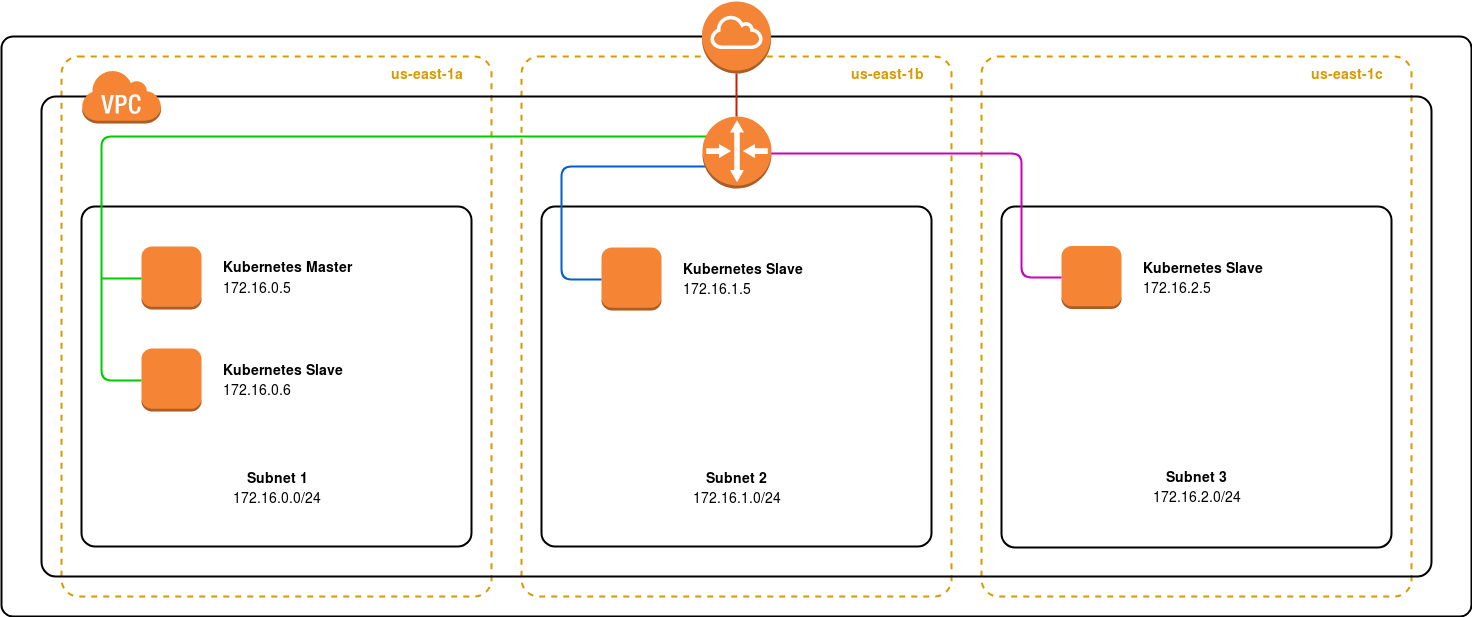This project uses kops to provision a fully functional Kubernetes cluster in AWS, install Couchbase Operator and run functional tests against the cluster. The project is designed to run in a container so it does not interfere with your main development environment and cann be run in the background.
This creates a 4 node Kubernetes cluster. Nodes are distrubuted across subnets in different availability zones within a VPC as depicted in the diagram.
Nodes are secured with an ephemeral SSH key. All APIs are secured via TLS. Nodes are accessible via public DNS.
docker run \
--rm \
--mount type=bind,source=/var/run/docker.sock,target=/var/run/docker.sock \
--mount type=bind,source=/home/simon/go/src/github.com/couchbase/couchbase-operator,target=/mnt/couchbase-operator,readonly \
--group-add $(grep docker /etc/group | cut -d: -f3) \
spjmurray/couchbase-operator-ci:0.0.1 \
--docker-user spjmurray \
--docker-api-key ${DOCKER_API_KEY} \
--docker-repo spjmurray/couchbase-operator \
--backend aws \
--aws-region us-east-1 \
--aws-access-key ${AWS_ACCESS_KEY} \
--aws-secret-key ${AWS_SECRET_KEY}
- --rm
- Clean the container up after exit
- --mount
- The CI job needs to have access to docker and clone the repository so needs access to the local host file system.
- --group-add
- The container runs as non-root but needs to access the docker socket, so add the user to the host docker group.
- DOCKER_API_KEY
- API key associated with a docker account
Due to the plugable nature of the test framework we can support different cloud technologies. Each has different configuration requirements via environment variables.
- AWS_REGION
- Which region to create the cluster in. The backend will automatically poll availability zones and distribute the cluster across them
- AWS_ACCESS_KEY
- Your access key for AWS authentication
- AWS_SECRET_KEY
- Your secret key for AWS authentication
